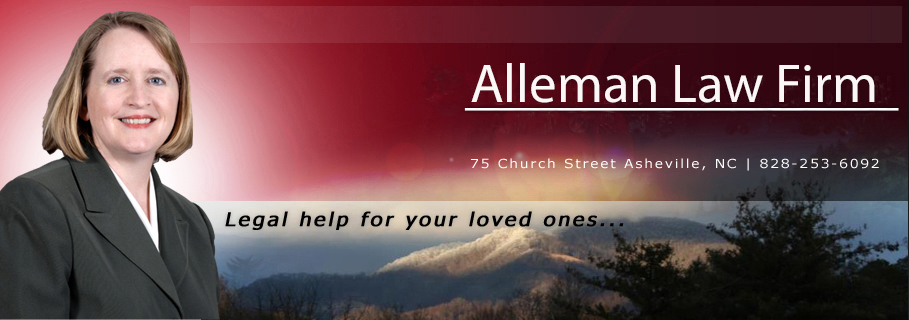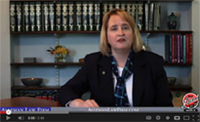Elder Law can encompass many topics including but not limited to:
Disability and Estate Planning, Trusts for Children and Grandchildren, Long-Term Care Insurance, Medicaid Rules and Planning, Health Care Decisions, Medicare, Nursing Homes or Retirement Living, Social Security, Nursing Home Negligence and Veteran’s Benefits.
How can an attorney practicing Elder Law support my loved one?
Not surprisingly one the biggest fears of the elderly are that they or their spouse will have to enter a nursing home and their entire life savings including their house will be consumed as a result. However, with proper estate planning this unfortunate result can be avoided. Clients are encouraged to consider long term care coverage and a skilled attorney can assist them in acquiring such coverage.
We advise our clients how to avoid the need to enter a nursing home, except as a last resort, receive the care they need at home, and assist them in finding programs that can help pay for such care. However, if it is no longer possible to take such actions, we assist them with becoming qualified for Medicaid.
What are the differences between Medicaid and Medicare and how to I access these funds?
Just because you may be entitled to Medicare benefits does not mean you are entitled to Medicaid benefits. The Medicare program pays for hospital and physician costs for seniors and the disabled. The Medicaid program is based on financial need and covers long term care costs, which are subject to certain income and asset restrictions.
Medicaid Planning
The average cost of a nursing care facility in North Carolina is between $6,000.00 and $8,000.00 per month. To be eligible for nursing home Medicaid benefits a person or married couple may only own certain assets, subject to certain limitations. The Alleman Law Firm can explain what other assets affect eligibility including non-homestead real estate, IRAs and other retirement accounts, bank accounts, etc.
Giving assets away to a spouse or loved one can affect eligibility. Indeed, making gifts to non-spouses can actually cause Medicaid disqualification. The length of disqualification depends upon the value of the gift and when it was made.
Should I ask for an attorneys help when transitioning my loved one to a different level of care?
One of the most confusing and stressful times for seniors and their families is when they must transition from complete independence to some level of dependence, whether it be the need for in-home care, or the need to reside in a senior living community, assisted living facility, or a nursing home. This transition presents a variety of medical, financial, and legal dilemmas that an attorney is best suited to help you with.
Because seniors and their families lack the experience to properly deal with many of these problems, there can be much confusion and stress. The confusion typically relates to determining what level of care the senior requires, how to obtain the needed care, how much the care will cost, and how the senior will pay for such care without losing everything rapidly. A skilled attorney can help you and your family identify which programs the senior may benefit from immediately, based upon their present level of care, and which programs they may need to pursue in the future, should they require a higher level of care.
A multi-stage plan outlines the steps necessary to qualify for benefits under each program and how to transition from one program to the other, without being disqualified from any one program. Many of our clients find great peace of mind by doing this planning when problems are not an emergency, rather than operating frantically when something traumatic happens.
How do I protect an Elder from financial exploitation, physical abuse, or neglect?
Financial exploitation is the illegal or improper use of an elder’s funds, property, or assets. Physical abuse is the use of physical force that may result in bodily injury, physical pain, or impairment. Neglect is the refusal or failure to fulfill any part of a person’s obligations or duties to an elder. Neglect may also include failure of a person who has fiduciary responsibilities (Agent under a Power of Attorney) to provide care for an elder (e.g., pay for necessary home care services) or the failure on the part of an in-home service provider to provide necessary care.
Our firm is committed to assisting seniors and their families in identifying areas of vulnerability and implement safeguards to warn our elderly clients and family of the latest scams to be avoided, in order to help prevent such harms from ever occurring. Some of the supports we provide for you and your loved ones include an assessment to identify the person’s medical, physical, and support needs, financial and credit safeguards recommendations and assistance, recommendations regarding public benefits to help defray or pay for care costs, and assessment of state and federal protection agencies and resources available.
If a senior is a victim of Elder Abuse, what can I do?
If a senior is the victim of Elder Abuse our firm and its network of other professionals can help pursue all civil and criminal remedies, which would bring the full weight of the law to the offending party. Our firm aggressively advocates for the rights of seniors to receive proper quality of care, regardless of whether it is in an in-home setting, an assisted living facility, or a nursing home.
Our attorney and network of other professionals can assist with admission and discharge planning, coordination of health care and prescription drug coverage, as well as the review of nursing home and care contracts. We can also advise you, upon request, as to matters involving improper discharge practices, improper billing practices, and unlawful discrimination.


